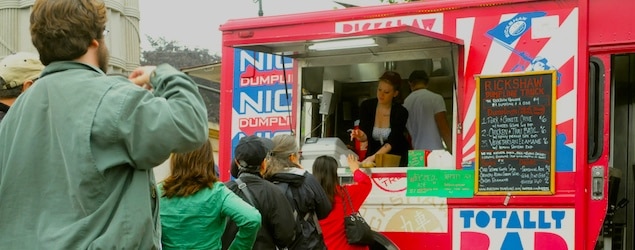Punishing Food Trucks for Their Popularity

The proliferation of the food truck industry has created numerous opportunities for entrepreneurial-minded Americans to start their own business. It is hard enough to succeed in the mobile cuisine business given how fiercely competitive the restaurant industry is. But government regulations are making it even harder for food truck entrepreneurs to stay afloat.
The Institute for Justice recently reported a story of two food truck owners who will be shutting down their operations in Chicago, in part due to the city’s “harsh food truck laws.” Nick Sibilla, a writer for IJ, explains:
The city has banned food trucks from doing business within 200 feet of any brick-and-mortar business that serves food. That includes not only restaurants but coffee shops and convenience stores as well.
Violate that rule and entrepreneurs can face fines of up to $2,000 — ten times the penalty for parking in front of a fire hydrant. To enforce the 200-foot rule, Chicago is forcing all food truck owners to install a GPS tracking device that reports each truck’s every move.
Controls like these are certainly not limited to Chicago and they are an obvious attempt to
insulate the restaurant industry from competition.
In practice, these regulations amount to punishing food trucks for being too popular. Supporters of the regulations recognize that people often prefer food trucks to restaurants, so they clamor for regulators to throw obstacles in the way of those trucks to make it harder for them to compete.
The fact that entrepreneurs can be deliberately held back by regulations because they attract lots of customers should disturb anyone who believes that you should be free to earn a living by creating your own business and enjoying the rewards.



